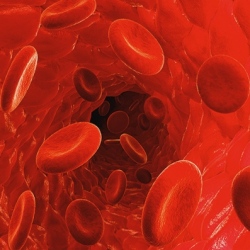
Clinical trials of a promising new therapy, in which white blood cells are reprogrammed to attack cancer cells, has resulted in the deaths of three patients. In response, the US Food and Drug Administration has ordered a temporary halt to the trial. A promising new approach to cancer has a major setback.
The new therapy, called JCAR015 (also known as the “ROCKET” trial), uses genetically engineered immune cells, known as CAR-T cells, to treat acute lymphoblastic leukemia (ALL) in adults, a cancer of the immune system that starts from the early version of white blood cells called lymphocytes in the bone marrow.
Once these juiced-up CAR-T cells are reintroduced into the patient’s bloodstream, they should prevent cancer from spreading and taking hold. In a study conducted earlier this year, 94 per cent of terminally ill patients who were treated with CAR-T went into remission.
Three patients, all under the age of 25, have died in a Juno Therapeutics Phase II clinical trial that’s been using the CAR-T cells to treat ALL. The patients died after excess fluids accumulated in their brains (cerebral edemas). In all cases, the deaths happened after a chemotherapy drug, fludarabine, was added to the treatment regimen.
The first death happened in May, but Juno wasn’t certain about the cause of death, saying “a change at that time was not warranted.” The subsequent deaths of two more patients, both from cerebral edemas, in the last week prompted the attention of the FDA, who issued an immediate, but temporary, halt to the trials.
Juno is blaming the deaths on the decision to introduce fludarabine into the treatment, a chemical cocktail that works to flush out the patient’s existing immune cells. Accordingly, the company has asked to re-start the trials, but without the benefit of fludarabine. The FDA wants Juno to revise its patient consent forms, investigative brochure, trial protocol, and a presentation it made to the FDA yesterday. Of the 90 patients expected to participate in the study, only 20 have been enrolled so far.
Despite Juno’s claim, there’s no conclusive evidence that the chemotherapy was responsible for the cerebral edemas. Dr. Stephan Grupp, a professor at the University of Pennsylvania Perelman School of Medicine, is in the midst of a similar trial that uses CAR-T cells to treat patients with paediatric acute lymphoblastic leukemia. He says it’s premature to pin the blame on fludarabine. Grupp’s team has not seen any significant brain swelling in their patients, who have been receiving the same chemotherapy drug. A few central nervous system issues have been observed, including confusion, aphasia, and seizures, but they’ve all all been resolved.
“Obviously, it is always hard to attribute toxicity to the chemo as opposed to the CAR-T cells when both are given around the same time, but we believe the self-limited CNS side effects we have reported from our study are more likely to be due to the T cells,” noted Grupp. “Right now, I don’t see this affecting other CAR-T trials or the field as a whole, since this issue appears not be seen more broadly. There may be some discussion about the appropriate role of the drug fludarabine, but this wouldn’t be a central issue.”
